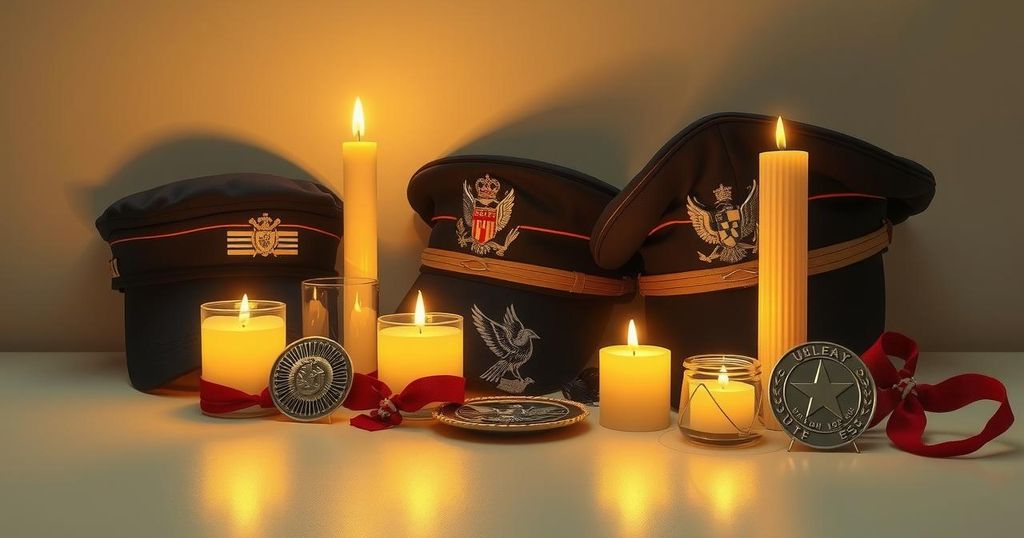Bolivia Honors Fallen Officers Amid Deadly Roadblock Clashes Linked to Morales Supporters

Bolivia held a memorial for police officers killed during protests linked to Evo Morales’ supporters. National Police Commander Augusto Russo vowed to pursue those responsible for the officers’ deaths. The protests, marked by significant roadblocks, reflect underlying economic grievances and political tensions, with Morales seeking another presidential run despite legal barriers.
In Bolivia, a solemn memorial was held on Saturday to honor police officers killed during recent protests linked to supporters of former President Evo Morales. National Police Commander Augusto Russo assured that the force would pursue those responsible for the deaths, labeling them as “cowards” and “murderers.”
During the tribute at the National Police Academy in La Paz, fallen officers Second Lieutenant Christian Calle, aged 22, and firefighter Sergeant Jesús Mamani received posthumous promotions. The ceremony included prayers, presentations of medals and service caps, and emotional farewells from their fellow officers, who waved white handkerchiefs as the procession departed. On the preceding day, two other officers, Carlos Apata and Brayan Barroso, were also laid to rest.
These officers lost their lives amidst violent clashes between security forces and Morales’ supporters across different regions in Bolivia. Three died on Wednesday while navigating towards Llallagua to assist residents impacted by protest-related roadblocks, while another was reportedly captured by protesters in Cochabamba and killed with an explosive device attached to him.
The protests have led to significant roadblocks along crucial routes, as demonstrators demand responses to urgent economic issues such as inflation, fuel shortages, and currency scarcity. President Luis Arce has countered, suggesting that the real aim of the unrest is to compel his resignation and facilitate Morales’s controversial bid for another presidential term.
Despite the government clearing some major highways after almost two weeks of disturbances, intense thoroughfare blockades remain, particularly in Cochabamba—a base for Morales and his union allies—impacting vital transportation routes.
Evo Morales, who held the presidency from 2006 to 2019, continues to campaign for a chance to run again despite legal set backs, as the Constitutional Court has restricted re-election to a single consecutive term, thus preventing his ambition for a fourth term.
Even after stepping down from his party, the Movement for Socialism (MAS), Morales still finds himself at odds with President Arce over numerous policy issues and upcoming elections in 2025. The protests and unrest compound Bolivia’s ongoing political turmoil, highlighting a division within the ruling party and raising alarm over the nation’s democratic stability.
The memorial for fallen officers in Bolivia underscores the tragic impact of ongoing political unrest, particularly as clashes intensify between law enforcement and Morales’ supporters. With inflation and economic hardship fueling protests, the future remains uncertain as Morales continues his controversial push for political relevance. The situation reflects deeper fractures within Bolivia’s political landscape, signaling potential threats to the country’s democratic foundation.
Original Source: efe.com







